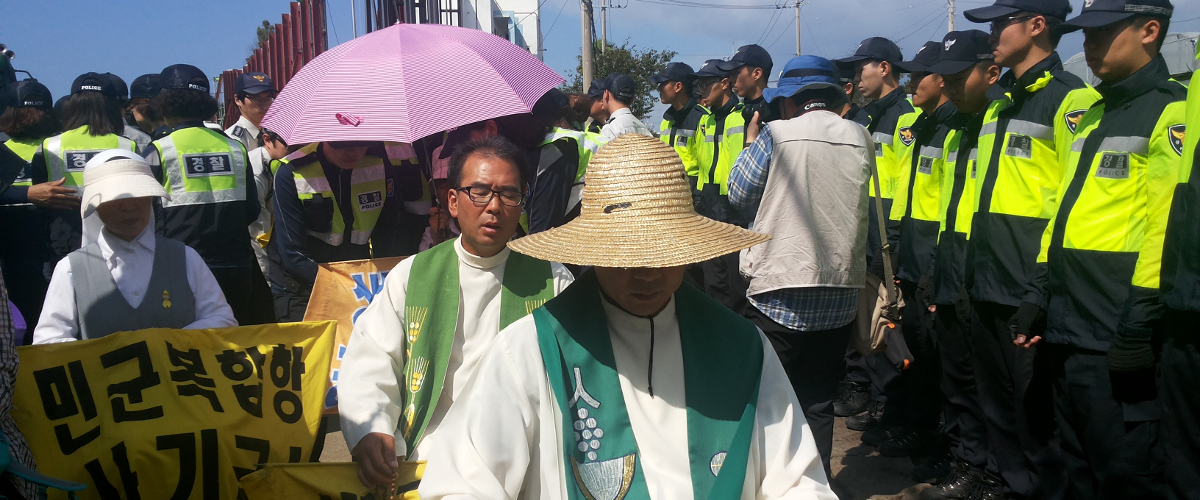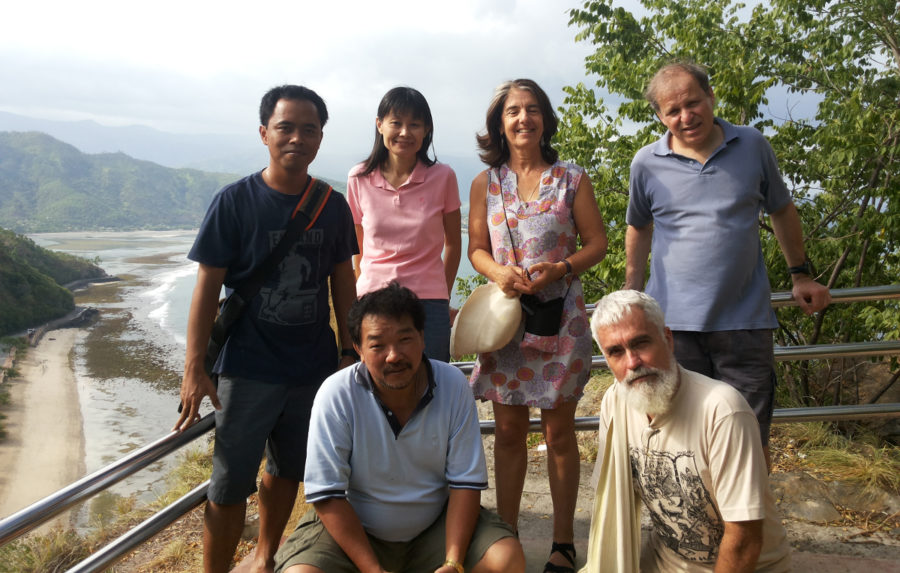
Nearly everyone is now familiar with Google Maps. We use it for finding a location and marking places of interest. With the ever more popular ride-hailing apps such as Uber and Grab, we have become masters of maps on a daily basis. A map allows us to have a bird’s eye view of the world and this gives us a sense of control by pinpointing our location and the destination we are trying to reach. That feeling however disappears quickly when the map takes us to a cul-de-sac or leads us to a wrong address. The world looks very different from above.
That is the feeling that I had when working for the JCAP office as the secretary for social ministries. This office coordinates various activities, individuals and organisations across the conference. This has allowed me to have a broad perspective on what provinces do and can do together as a unit, cutting across national boundaries. From this vantage point, national identity looks less important than the mission given to the Society. Shared missions are indeed amplified as I got to see more similarities than differences between apostolic works. As the Society is learning to embrace networking as an apostolic way of proceeding, conference works seem more relevant than ever.

In 2010 JCAP major superiors designated migration and ecology (or reconciliation with creation in its proper name) as the two common apostolic preferences. This means that provinces in the conference must work together to respond to these two concerns as a collective unit. As most people would agree, these two issues define our age in unprecedented ways. No nations can address them adequately if they act individually, so these really challenge people to work in a coordinated way. Again, looking at them from the conference perspective, it looks quite straightforward. In the case of migration work, for example, one Jesuit institution in a sending country can help prepare prospective migrant workers with skills training and sessions on workers’ rights. Another Jesuit organisation in the receiving country can ensure the fulfilment of these rights by advocating on migrants’ behalf when things do not go as planned. As a global religious order, the Jesuits are well placed to do such things. After all, the Society was born out of a friendship that grew between individuals of different nationalities who were constantly on the move from one country to the next.
This is where reality bites back. Almost all social centres in JCAP started as a small initiative by one or two individual Jesuits or lay persons to respond to a very local problem. Some of them grew to become more institutionalised with resources to match, but many more remain to function at the level they started. Limited personnel and resources haunt these organisations and constrain their reach and ambition. For them networking across countries seems a tall order if not outright impossible.

That institutional profile may be dictated by necessity in certain contexts. Authoritarian or less democratic political regimes in various disguises are known to be allergic to critical voices and alternative visions coming from civil society. In other contexts, Jesuit institutions are wary of being associated with foreign influences, whose condemnation is a national sport for many political leaders in this part of the world. In some other contexts, perhaps it is a vote of non-confidence in an apostolic sector that was run by people who were once described by Fr Kolvenbach as “sometimes discouraged and scattered, somehow lacking in collaboration and organisation”. (On Social Apostolate, 2000)
All this complexity is often missed out when seen from a conference vantage point. I was tasked with bringing institutions and people together, connecting them as a collective unit. In other words, my job was to introduce order in what was perceived as a rather chaotic entity. What I often forgot was that such social engineering is necessarily schematic and limited. It portrays an image of the Society according to my needs for control and interventions. In the process I might have overlooked details which tell a story of faithfulness to the mission of justice or a meaningful engagement with grassroots realities. My regret in this work is that I did not spend more time listening to those pioneers in Thailand, Japan, Korea, Cambodia, the Philippines and Australia who persevere in their accompaniment of the poor regardless of the strategic plans and measurable outcomes so beloved by international development industry.
At the end of the day we need both perspectives. The conference perspective paints the bigger picture of the mission, shows the potentials of collaboration and offers an infrastructure of solidarity. The actual action and the real presence among the poor happens at each and every site where Jesuits and lay partners work hand in hand to restore humanity. On the 2018’s World Day of the Poor, Pope Francis calls us to “make a serious examination of conscience, to see if we are truly capable of hearing the cry of the poor”. Be it an analysis of the causes of poverty or a simple gesture of offering help to those in need, our mission is best served if we heed that call.
Benny Juliawan SJ
JCAP Secretary for Social Ministries, 2013-2018

